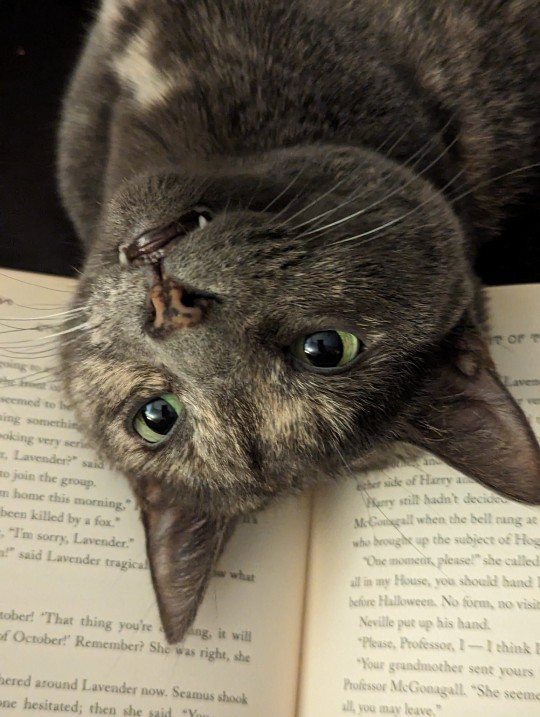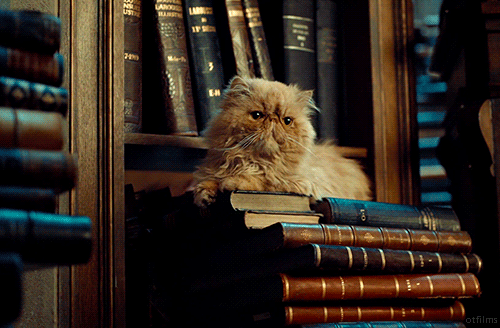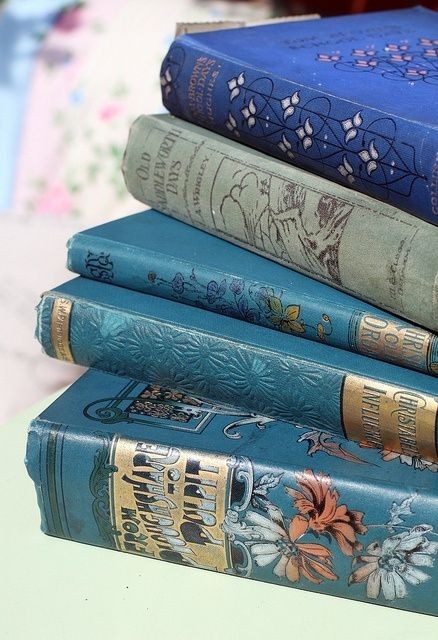#book reader problems
Text


Attempting to read this morning.
#look at those teefs#someone wants attention#Lexie Anne#cats of tumblr#book reader problems#reader problems#cat owner problems#booklr#books#bookstagram#bookish#book#goodreads#goodreads challenge#bookblr
2K notes
·
View notes
Text
too old for booktok, too ugly for booktube, just dumb enough for booklr
#booklr#light acamedia#dark academia#book quotes#book blog#books and libraries#book blogger#bookish#bookstore#english lit major#books#book aesthetic#bookworm#reader#reader problems#book nerd#book nerd problems#bookworm problems#booktok#booktube#books and literature#english literature#literature#blogger#bookblogger#bookstagram#studyblr#books and reading#booklover
501 notes
·
View notes
Text
Tips For "Show, Don't Tell."


Honestly, show don't tell is something I feel even I struggle with and I'm pretty sure anyone who writes faces it. Finding a balance is hard. When to show and when to tell can become an inherent feeling though. However, there are some things I've learnt and I hope they help you!
❥︎Emphasise Sensory Detailing: Not only does packing a scene with sensory details help readers imagine the setting, it also gives your characters a distinct physical world to interact with. Rather than simply saying that a character is in New York, describe the light reflecting off the Hudson River, or the towering colossus of the Statue of Liberty.
❥︎Describe body language and avoid emotional explanation when showing.
❥︎Like I said, focus on describing senses and lean more on the usage of imagery too, it'll help if you understand that literary device. I have a post on how to use imagery in writing which helps a lot when showing and not telling. Pick adjectives that you use to describe and replace them with sensory descriptions. Eg:
+ He was scared when he saw the lion at the exit.
+ His heart raced when he saw the lion looming at the end of his escape route.
See what I did here?
Did you feel the difference?
❥︎ learn from examples of 'Show, Don't tell' by reading. The most basic.
❥︎ Use of Dialogue: can also teach readers about characters through word choice, tone, and POV. For instance:
The tray flipped and drenched her in wine. She shrieked and jumped out of her seat, glaring at the waiter.
And
The tray flipped and drenched her in wine but all she did was sigh and smile in understanding.
The scene is the same but the character's approach was different in each case. The former seems kind while the latter seems to be a temperamental character.
❥︎Make your character do something out of ordinary, something that breaks the routine or would make a heavier impact. For eg:
If a character speaks in long-winded, erudite sentences, readers might gather that they are pompous and well-educated. If this same character suddenly begins speaking in terse, short bursts later in the novel, readers might note that something in that character has shifted.
If they're described as someone who never cooks say and then at some time they cook for the live interest, it'll pique the reader’s Interest because it was uncharacteristic of them to do.
❥︎Having a diverse vocabulary, imagination and the ability to use literary devices like metaphors will greatly aid in Show don't tell.
❥︎And lastly, It's fine if you don't get it right the first time because that's how writing works. The more you read, attempt and err, the more you learn. But having an idea of what to do will go a great way in guiding and saving time.
Hope it helps! Follow for more, like and share! <3
#show don't tell#how to write#writing tips#writing advice#writerblr#books#writers#readers of tumblr#daily life#bookaddict#writing a book#writers on tumblr#writing ref#writing prompts#reader problems#dank memes#book blog#booklover
2K notes
·
View notes
Text
#honestly just trying to see if i have a problem or not#bookblr#booklr#poll#books#reader#studyblr#100 days of productivity#studygram#bookstagram#book poll#personal library
304 notes
·
View notes
Text
thing that make me go "adsfdghjkj" (as a reader / fiction enthusiast)
whispered promises
kisses on rings
remembering something the love interest said offhandedly
that ~feeling~ when someone is there
that moment where the foreshadowing clicks
dancing in the rain
dancing in the dark
just dancing, really
dancing while plotting a murder
the marriage scene between Elizabeth and Will (iykyk)
holding them closer
whispering the same thing from far away
cursing under their breath
looking to find them and they're not there
consistency (r2 refusing to leave Luke because of what happened with Anakin the last time he was told to stay behind)
shutting about certain subjects with certain people but confessing everything to another
knowing looks
taking turns protecting each other
finishing sentences / thoughts
* tension *
excuses for butterflies
exhaling at a touch
looking away quickly when they were spotted looking
#readers problems#lyralit#writers prompt#readerblr#readers#reader things#writing things#writing ideas#reader#readersgonnaread#asdfghn#writblr#writerblr#creative writing#writing#writers#books#books & libraries#kindle books#comic books#bookstack#books and literature#old books#bookblr#reading#books and reading#currently reading#bookworm#queued thoughts
2K notes
·
View notes
Text
conversations about representation have always felt so navel-gazing to me, in part because those conversations tend to remain at the level of individual characters. the focus is on representing individuals as meaningful examples of the groups they belong to - to have “good” representation is to see some component(s) of your social identity reflected back at you by a character without those being the only traits of those characters. To measure representation you first look to see if there are visual or descriptive markers of identity - skin colour, gender, sexual attraction, ability - and then, once that evidence is established, one looks at how characters interact with and contribute to the narrative. does this gay character have a romantic partner? does this black character have interiority not related to their relationship to white characters? is this woman character motivated by something other than a desire to impress men? The goal is to avoid stereotypes, to be an anti-stereotype.
And so you ‘solve’ representation through the adequate presence of these characters. But I think this is an inherently individualistic and anti-liberatory way to approach representation, because it views minorities as individuals who can be cut from the social fabric of real life and transported into different fictional universes while leaving their identities fully intact. The presence of a disabled character does not also require the inclusion of structural ableism in the narrative, their individual presence is enough to represent disability. And so their presence in the narrative seems to emerge from nowhere - you don’t judge representation by looking at how the narrative represents and thinks about historical structures of race, gender, ability, you judge it by the amount of characters who contain those social markers. It means social identity exists primarily within the individual. There is no historical perspective given to characters, no acknowledgement of the fact that identity is dialectic and socially mediated. to paraphrase Gramsci, history impresses upon you an infinity of traces without leaving an inventory, and I think when discussing representation, people judge the quality of representation by those traces - race, gender, ability, sexuality, religion, etc - but ignores the inventory, the origins of those things, the social processes that produce race, produce gender, constantly and everyday. And so you get these characters that feel dislocated, alien to themselves and other people, because they express an identity that appears to have no origin point in the fictional world, no social backing. They are essentialised to what they “are” deep down inside. Characters are not made racial, not made gendered, not made disabled by the universe they exist in, they simply “are” those things.
And if narratives do tackle those histories, they tend to represent them primarily through misery. You know a character is gay because they get called slurs. You see a black character experience racism. You recognise a character is a woman by the fact that she is sexually assaulted. The history of their identities is represented as individual acts of violence or trauma, as if misogyny or racism are narrative objects themselves that occasionally collide with the characters to remind the audience that the authors take history very seriously. If an author is especially serious, they will get individual sensitivity readers to confirm or deny the authenticity of the social identity being expressed on the page; much less often you will hear of authors who rigorously consult, for example, books like Orientalism to ensure the structure of their work is not reproducing Western (and ultimately racist) conclusions about the world they are creating. Representational politics begins (and frequently ends) at the level of the individual. And so you get queer characters who endure homophobia or transphobia, but whose ultimate wish is to enter into a monogamous marriage and reproduce the social unit of the nuclear family, or the black character who finally finds community in a group of all white people that aren’t racist to their face. That’s not tackling history, that’s just allowing these character to be momentarily exempt from it. the historical norms and hegemonies present in the narrative are disconnected from the characters themselves. this is why you can have “good representation” in stories that are fundamentally racist or misogynistic or heteronormative (see: ofmd). If representation is only housed in your characters, if you view representation as a discrete trait that you can add more or less of, you are not thinking about the social identities that you are representing in a systemic way - you are, in effect, producing tokens.
And I think that sense of dislocation is part of what motivates people to cringe away from stories primarily billed as having “a diverse cast” or filled with “queer characters” or whatever, even when they are otherwise desperate for those things (excluding from this discussion the people who dislike the mere appearance of characters who are not strong white men, a perspective that is not worth entertaining). I do not want to watch stories that smash characters and identities together like barbie dolls, that treat race or gender as something to “tackle” in a B plot or a “police brutality episode” like you get in a show like Brooklyn 99. I do not want a character creation screen. Identity should, ideally, be part of the structure of the narrative, not a thing you merely choose to “include.” Which is much more difficult, of course - it requires a robust political imagination, but it’s a problem that is possible to solve.
#effortpost#media#book club#been thinking about this for a while and it’s slowly being crystallised in my brain#also not bashing sensitivity readers inherently. I just think that thinking about representation as something that can be ‘confirmed’ by#individual members of a minority group creates problems#because minorities are not a monolith#and the realm of personal experience kind of inherently limits your ability to think about these things#at the level of systems of structures
180 notes
·
View notes
Text

No spoilers for HOFAB
I feel empty. I finished it, so what the hell do I do now?? I need a hug. I need a mate, and I need my memory wiped so I can start her books all over again.
If you need me, I'll be laying on my bed, face down, in a starfish position, crying into my pillows.
(what the hell does sjm put in her books, is it some type of witchcraft bc im not at that level yet)
#hofab#sjm#bryce quinlan#hunt athalar#ruhn danaan#lidia cervos#crescent city#house of flame and shadow#witchthewriter#book grief#books#reader's problems#tharion ketos#hypaxia enador#ithan holstrom#the astari
32 notes
·
View notes
Text
choosing between a biker bf and a rich bf is so hard like why cant i choose both but NO YOU HAVE TO CHOOSE ONE.
20 notes
·
View notes
Text

“I’ll read fewer books in the upcoming year.” Do you ever just lie to yourself so hard you have to laugh out loud?
#I'm on track to only read 9 fewer books than last year#what can I say but 'whoops'#and I really wanted to read longer books as well as fewer books#and the average page count per book HAS gone up#but still this nonsense#book reader problems#reader problems#bookish#booklr#bookstagram#books#book
2 notes
·
View notes
Text
I find it unbelievable how you can put your blood, sweat, tears and too much time into your writing with 209392730174 instances of writer’s block and a reader can just blitz it in a few hours and go, “Right, onto the next one.”
#books#reading#readers#writers#authors#blood sweat and tears#writing#writing memes#writing problems#writer problems
23 notes
·
View notes
Text
Does anybody have any solid recommendations for short (or even long) stories that use third person omniscient well, for writers who have never read/written it, but want to get a feel for whether they want to?
#writing#writers#write#writers on tumblr#writeblr#writerscommunity#writer problems#writer things#writing advice#writing tips#third person#book reccs#book recommendations#reading#short reads#short stories#readblr#reading community#readers on tumblr#bookblr
23 notes
·
View notes
Text
im curious, what is the worst mischaracterisation of a character you've ever read in a fanfic?
#fanfic#percy jackson#pjo#annabeth chase#rick riordan#fanfiction#pjo fandom#a03 writer#a03 fanfic#fangirl problems#archive of our own#fanfic writing#books and reading#harry potter#pjo tv show#percy x annabeth#heroes of olympus#wattpad#wattpad writer#readers#fandom#fandom things#fanfics#writing fanfiction#fandom culture#fandom problems
27 notes
·
View notes
Text
Motifs and Their Uses


It's not necessary that you know what a motif is or how to use it.
Motif is one of the most useful literary devices when writing a novel or short story. At the same time, the definition of motif can be difficult to pin down.
Motif is a literary technique that consists of a repeated element that has symbolic significance to a literary work. Sometimes, a motif is a recurring image. Other times, it’s a repeated word, phrase, or topic expressed in language. A motif can be a recurring situation or action. It can be a sound or smell, a temperature, even a color.
If you spot a symbol, concept, or plot structure that surfaces repeatedly in the text, you're probably dealing with a motif. They must be related to the central idea of the work, and they always end up reinforcing the author's overall message.
EXAMPLES:
A repeated reference or visual of shattered glass (something in life is about to break)
Recurring dishonest characters (to cue up the discovery of an unfaithful spouse)
The key aspect is that a motif repeats, and through this repetition helps to illuminate the dominant ideas, central themes, and deeper meaning of a story.
Authors utilize motifs for multiple purposes. Motifs can:
1. Evoke a mood
2. Illuminate main themes
3. Engage the audience on an intuitive level
4. Create unique symbolic meanings through repetition
5. Establish a pattern of ideas
#writing tips#writing advice#using motifs#motifs#how to write#writing a book#books#writers#daily life#readers of tumblr#bookaddict#writers on tumblr#reader problems#dank memes#book blog#booklover#writeblr
2K notes
·
View notes
Text
when is it my turn to get fucked senseless by my enemy-turned-lover on his fucking throne as he confesses his undying love????!
#reader problems#asking for a friend#book boyfriend#fictional men#shadow daddy#men written by women#just finished chapter 48 of Iron flame#xaden riorson#violet and xaden#rhysand#feysand#my roman empire#enemies to lovers#hopeless romantic#angeldevilorprincess#18+ blog
38 notes
·
View notes
Text
I think part of what got me back into Roman history - after hanging out in fandoms for a while - is that it's messed up. Most people understand that these Romans did Awful Things. The empire was built out of Awful Things, and those things really happened. You can't ignore canon and fanfic your way out of this plotline!
So we feel revulsion. Judgment. (Or at least I feel that way sometimes.) Okay, now what do we do with those feelings? Do we stop being curious? Do we move on in search of characters that are more in line with our values? (No judgment, sometimes I want actual heroes, too.)
Or do we try to understand? To not romanticize or demonize, to not make excuses for historical figures or co-opt them for our own purposes, but just to ask how? And why? And what do we know, and what do we only think we know? Because that's when you start learning new facts instead of just filtering them to affirm your worldview. And if you keep digging, you won't just find awfulness - the good parts of human nature have always been there, too.
It's not appealing to everyone. This is not my "comfort series" (though I do have some of those). But I like the challenge of it.
#i also REALLY appreciate authors who trust the readers to know their own values and don't need a book to be didactic#and the book lets you make up your own mind about the characters instead of reminding you Bad Things Are Bad#one of the things i found refreshing about masters of rome and roma sub rosa#opinionated nonfiction can also be fun tho if the author is upfront about it. because then you get to argue with them!#jlrrt speaks#history nerd problems#jlrrt essays
38 notes
·
View notes
Text
So I finished reading Fourth Wing yesterday and I still haven’t recovered… what am I supposed to do with my life now? 🥲
#reader problems#not me thinking about rereading that book immediately now after I finished it#but who’s gonna stop me 👀#fourth wing#i am obsessed#rebecca yarros#xaden riorson#violet sorrengail#tairneanach#andarna
111 notes
·
View notes